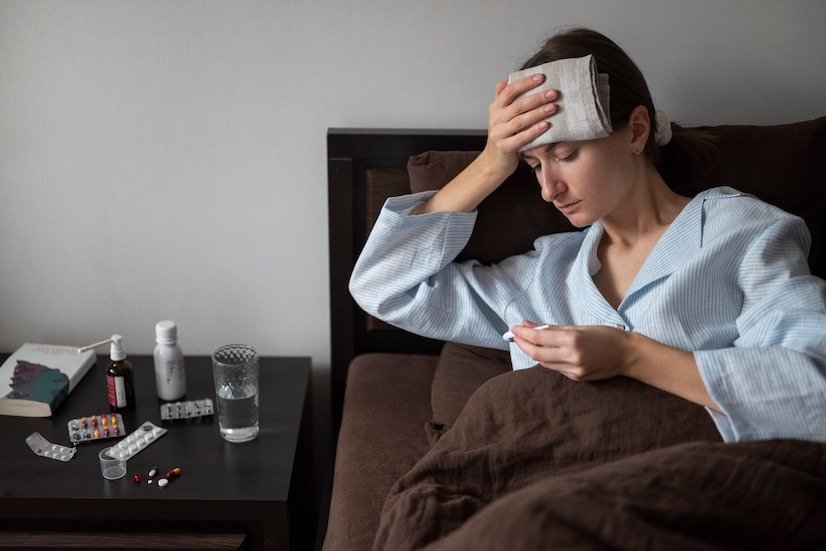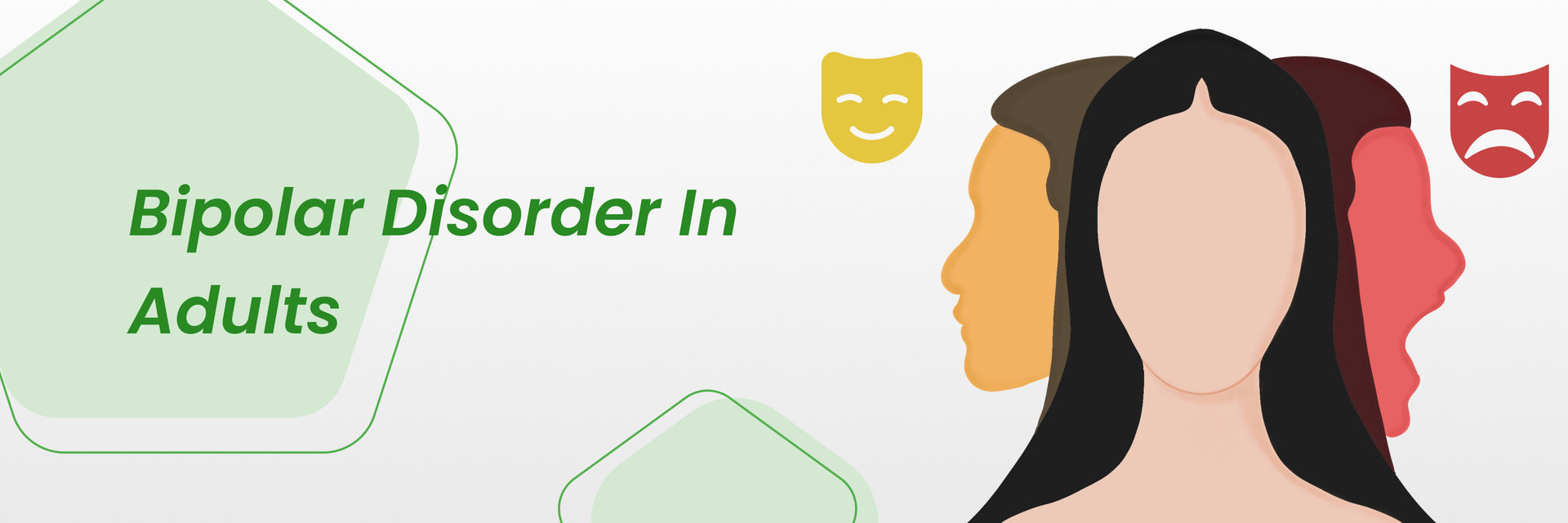Did you know that sleep problems are common in people with schizophrenia?
Yes, research shows that up to 80% of individuals with schizophrenia experience sleep disorders. This strong link between schizophrenia and sleep issues can significantly affect daily life and overall health.
Dr. Vikas Patel, a renowned psychiatrist from Ludhiana, sheds some light on this issue. He said,
"Yes, sleep disorders are very common in individuals with schizophrenia. Most of the people with schizophrenia experience sleep problems such as insomnia, sleep apnea, and restless legs syndrome. These issues can worsen psychiatric symptoms, impair cognitive function, and reduce overall quality of life. Effective management involves medication, therapy, and lifestyle adjustments."
Understanding Schizophrenia
What exactly is schizophrenia?
Schizophrenia is a chronic mental health disorder that affects how a person thinks, feels, and behaves. It is characterized by a range of symptoms, including:
- Hallucinations: Seeing or hearing things that aren’t there.
- Delusions: hold false beliefs that are not based on reality.
- Disorganised Thinking: Trouble organizing thoughts and connecting them.
- Negative Symptoms: Reduced functioning ability, such as lack of motivation, reduced speaking, or social withdrawal.
- Cognitive Symptoms: Problems with memory, attention, and decision-making.
Prevalence and Impact on Daily Life
Schizophrenia affects about 1% of the global population. This means millions of people worldwide are living with this challenging condition. The onset of schizophrenia occurs in late adolescence or early adulthood.
The impact of schizophrenia on daily life:
- Employment: Many individuals with schizophrenia find it difficult to maintain regular employment due to cognitive and social impairments.
- Relationships: Building and maintaining personal relationships can be challenging, leading to social isolation.
- Daily Activities: Basic tasks such as self-care, managing finances, and maintaining a household can become overwhelming.
- Health: People with schizophrenia often face co-occurring conditions such as anxiety, depression, and substance abuse, further complicating their lives.
If you or someone you know is experiencing symptoms of schizophrenia, connect with a psychiatrist for personalized advice.
Types of Sleep Disorders Common in Schizophrenia
Did you know that sleep disorders are frequent among individuals with schizophrenia?
Here are the most common ones:
Insomnia
- Difficulty Falling Asleep: People with schizophrenia often struggle to fall asleep or stay asleep.
- Fragmented Sleep: Their sleep is interrupted, leading to poor sleep quality.
Sleep Apnea
- Obstructive Sleep Apnea (OSA): Individuals with schizophrenia are twice as likely to have sleep apnea, where breathing stops and starts during sleep.
- Central Sleep Apnea (CSA): Less common but still prevalent, where the brain fails to send proper signals to the muscles that control breathing.
Circadian Rhythm Disorders
- Irregular Sleep-Wake Rhythm: People with schizophrenia often have disrupted circadian rhythms, causing irregular sleep patterns.
- Delayed Sleep Phase Syndrome (DSPS) is difficulty falling asleep at a conventional time and waking up late in the morning.
Restless Legs Syndrome (RLS)
- Uncomfortable Leg Sensations: An irresistible urge to move the legs, often accompanied by uncomfortable sensations, especially at night.
- Sleep Disruption: The need to move the legs can disrupt sleep, leading to insomnia.
If you are struggling with schizophrenia and sleep issues, consult a psychiatrist or sleep specialist for personalized advice.
How does schizophrenia affect sleep?
Impact of Antipsychotic Medications on Sleep
- Sedation: Some antipsychotic medications cause sedation, making it easier to fall asleep, but can also lead to daytime drowsiness.
- Sleep Architecture: Medications may alter the natural sleep stages, reducing REM sleep and affecting sleep quality.
How Schizophrenia Symptoms Interfere with Sleep Patterns
- Paranoia and Anxiety: Persistent fear and anxiety can make it difficult to relax and fall asleep.
- Hallucinations and Delusions: These symptoms can be distressing and disrupt sleep, leading to frequent awakenings and poor sleep quality.
- Disorganized Thinking: Difficulty organizing thoughts can prevent a regular sleep routine, leading to irregular sleep patterns.
Biological Mechanisms Linking Schizophrenia and Sleep Disorders
What biological factors connect schizophrenia and sleep disorders? Here are the main mechanisms:
Neurochemical Imbalances
- Dopamine Dysregulation: Abnormal dopamine levels in the brain are a hallmark of schizophrenia and can disrupt sleep patterns.
- Serotonin Levels: Imbalances in serotonin, which regulates sleep, can lead to sleep disorders.
Genetic Factors
- Hereditary Influence: Genetic predispositions to both schizophrenia and sleep disorders suggest a shared genetic basis.
- Family Studies: Studies show that relatives of individuals with schizophrenia are also at higher risk for sleep disorders.
The Role of the Circadian Rhythm
- Clock Genes: Disruptions in genes regulating the circadian rhythm can affect sleep and schizophrenia symptoms.
- Light Exposure: Abnormalities in how light exposure is processed can lead to circadian rhythm disorders, which can exacerbate schizophrenia symptoms.
Consequences of Sleep Disorders in Schizophrenia
How do sleep disorders impact people with schizophrenia? The effects can be severe:
Worsening of Psychiatric Symptoms
- Increased Hallucinations and Delusions: Lack of sleep can intensify symptoms like hallucinations and delusions.
- Higher Anxiety and Depression: Poor sleep quality often leads to increased levels of anxiety and depression.
Cognitive Impairment
- Memory Problems: Sleep deprivation can worsen memory issues common in schizophrenia.
- Difficulty Concentrating: Poor sleep makes trouble focusing and processing information more pronounced.
Reduced Quality of Life
- Social Isolation: Difficulty maintaining relationships due to irritability and mood swings.
- Daily Functioning: Reduced ability to perform daily tasks, impacting independence and well-being.
How are sleep disorders diagnosed in schizophrenia patients?
Tools and Methods
- Polysomnography: An overnight sleep study that records brain waves, oxygen levels, heart rate, and breathing.
- Actigraphy: A wrist-worn device that tracks movement and provides insights into sleep patterns.
- Sleep Diaries: Patients record their sleep habits and disturbances over some time.
Importance of Comprehensive Sleep Assessments
- Holistic Approach: A thorough evaluation helps identify all contributing factors to sleep issues.
- Tailored Treatment: Accurate diagnosis allows personalized treatment plans that address specific needs.
What are the effective treatments for sleep disorders in schizophrenia?
Medications
- Sedative Antipsychotics: These help manage both schizophrenia symptoms and sleep disturbances.
- Sleep Aids: Medications like melatonin or zolpidem can help regulate sleep patterns.
Therapies
- Cognitive-behavioral therapy for Insomnia (CBT-I): A structured program that helps patients change thoughts and behaviors around sleep.
- Relaxation Techniques: Methods such as meditation and deep breathing exercises to promote relaxation before bedtime.
Lifestyle Changes
- Sleep Hygiene: Practices like maintaining a regular sleep schedule, creating a restful environment, and avoiding caffeine before bed.
- Environmental Adjustments: Ensuring a quiet, dark, and cool bedroom to enhance sleep quality.
Conclusion
Addressing sleep disorders in schizophrenia patients is crucial for improving their quality of life. Effective management includes proper diagnosis, tailored treatments, and ongoing support. Focusing on these areas can help those affected lead healthier, more fulfilling lives.
References:
https://www.ncbi.nlm.nih.gov/pmc/articles/PMC5614792/
https://www.sciencedirect.com/science/article/pii/S1740677311000441






